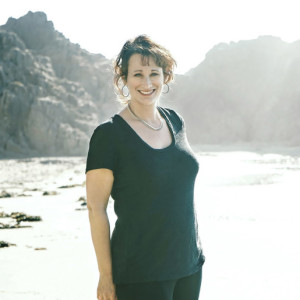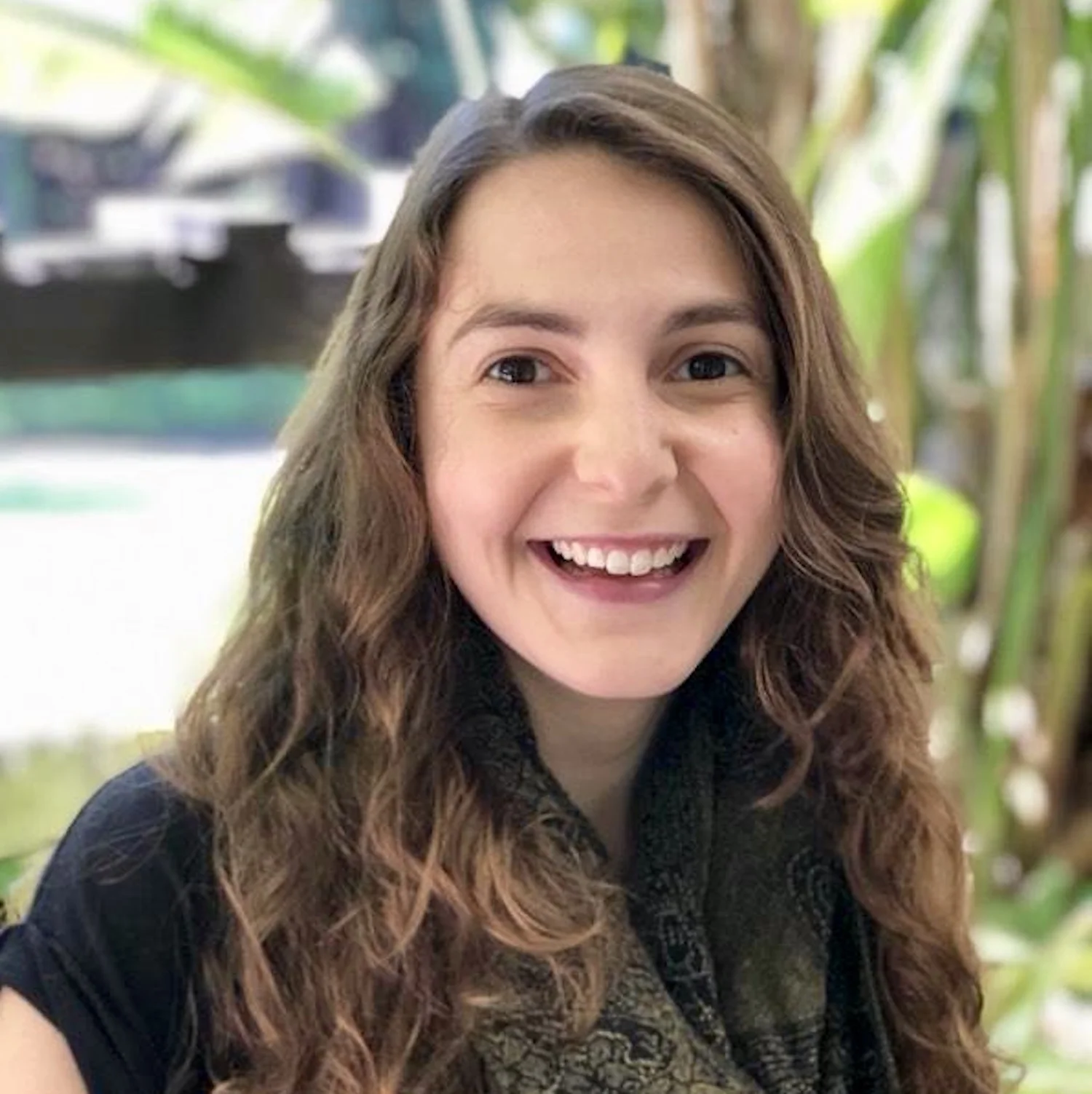Why the Climate Movement Needs an Attitude Adjustment
Climate change solutions have been in the works for decades. So what’s holding us back?
We’re at a critical decision point. The tools are within our reach to combat megadroughts, famine, and sinking cities at their root cause. Public policy, technology, market forces and infrastructure are locked and loaded to reverse decades of climate damage, but we’re still reticent to pull the trigger.
Dr. Renee Lertzman is a climate psychologist, consultant and teacher.
Much of this inaction can be attributed to lobbying and media from industries most directly affected by reform. But there is a larger obstacle, far more complicated and more deeply ingrained than renewable technology or carbon pricing: human psychology.
A basic premise among sociologists, psychologists and political scientists, proven time and again in political contests throughout history, places emotion over logic as the driving force in decision-making. Dr. Renee Lertzman is one such believer in the potency of intuition. A professional ‘climate psychologist,’ Renee has aided organizations including the White House Social and Behavioral Sciences Team (SBST), National Center for Atmospheric Research, NOAA, and Columbia University to understand the intrinsic, irrational mechanisms at work in climate science and policy.
She and I spoke over the phone about the role emotions play in corporate sustainability, the 2016 election, and what it’s going to take to fully wrap our heads—and hearts—around climate change.
Empathy is a learned skill
Gavi: There’s a lot of concern among activists and citizens about what the state of our climate is and climate policy. What do you recommend to people who right now feel a little bit despondent about climate—whether to the average citizen, to the activists or even to corporate sustainability executives?
Renee: Our whole range of experience about what’s happening is actually where we draw our strength and our power from, so that’s number one: to work actively on giving ourselves and one another permission to feel however it is we’re feeling; to not force ourselves or one another to move into feeling suddenly active or motivated when we might just need a little bit of time to just take stock in whatever way makes sense for us. Trust that in doing so we will be so much more effective and will be so much more capable meeting what comes ahead because we will in fact be more resilient.
Gavi: I think the climate movement has been unfortunately—and maybe unintentionally—alienating some people that really could be valuable allies in climate solutions. The coal community is a great example. How did green groups lose them and is it too late to bring them back into the movement?
Renee: People don’t just magically, instantly become compassionate and have genuine concern and empathy for others. That’s something that actually needs to be taught, and it needs to be trained, and there’s established practices for doing that. And that’s what we need to be doing.
When I think about raising capacity within the progressive left community—across the board, but especially for those working on environment and climate change protection—that’s one of the most important things we could be doing right now, is figuring out how to raise those capabilities to be able to be more tuned in. I mean the reason it’s really hard is because, as I mentioned earlier, the stakes are very high. And so it’s hard to go there if you feel like we’re fighting a war; and we are, in a sense, fighting a war. But right now we have to become more like martial artists.
“I think it’s incredibly important that we frame our situation as an opportunity for humans to show up and be the problem-solving beings that we are.”
A problem-solving opportunity
Gavi: Conservative America tends to support renewable energy across the board almost as much as people on the coast. In fact, out of all the issues that were central in this election, I find it really hopeful that clean energy is one of the areas with the most crossover between left and right. Do you see this as a good signal, and how can we harness this to make progress?
Renee: It’s a powerful signal, it’s an area to really focus on and support. I think it demonstrates that there’s a lot of contradiction and irrationality around all wrapped up in the climate issue, and that’s a huge part of what my work addresses is trying to understand the irrationality, and why that’s happening, and how to make sense of it. It has a lot to do with anxiety, you know, it has a lot to do with what brings up people’s anxieties, what feels safe and appropriate to go to. And renewable energy is sort of on its own, it’s not really attached to as much of a sense of threat as other aspects of climate change might be.
Gavi: We can encourage people to support solar panels all day long, but that doesn’t change the fact that we’re in a crisis that’s much bigger than that, and that doesn’t necessarily help us solve it when we’re not addressing the root cause. Is that kind of what you’re getting at?
Renee: Yeah, and I think it’s incredibly important that we frame our situation as an opportunity for humans to show up and be the problem-solving beings that we are. But that doesn’t mean having to be positive. I really find the focus on solutions can be extremely counterproductive. This is an opportunity for us to try to practice more of an authentic way of communicating and engaging with people.
Gavi: Have you seen a distinct difference in the way that climate change is being processed between Millennials and older generations?
Renee: There’s a massive difference. I think that’s without any question and I think we’re just beginning to understand that. How Millennials and older people relate to any issue is going to be really different, so it’s not specific to climate and it’s not specific to Millennials. It’s about young people and older people. It’s about how young people experience time and the future differently than older people. It’s about having a whole different set of memories and associations and experience to draw on—generational memory, something a researcher at the University of Washington, Peter Kahn, called generational amnesia. Environmental change happens so quickly, within a lifespan, that my grandparents can remember swimming in Lake Michigan when it was still safe and you could fish, and their kid is going to have no recollection of that.”
“The most important thing that any company, corporation, or leadership can do is to practice being authentic with its stakeholders, its consumers, and within the organization.”
Emotional literacy
Gavi: I’m interested in your take on how we can break down skepticism to help these companies that have enormous resources to do something about climate change without rubber-stamping ‘greenwashing.’
Renee: The most important thing that any company, corporation, or leadership can do is to practice being authentic with its stakeholders, its consumers, and within the organization. The only way to combat greenwashing is by not greenwashing, and by being authentic. That companies demonstrate what I’m calling emotional literacy is absolutely essential.
Gavi: What effect does corporate sustainability and marketing have on the climate psyche for the general public? Does it really do something for the consumer, just be their favorite brand going green?
“The environment is a human issue—which makes it as much an emotional crisis as a scientific one.”
Renee: If we continue to look to the consumer to drive the change we’re going to be waiting a really long time, and we don’t have time for that. The one thing that I see brands have the capacity to do is to give people permission to go to a place that they would not ordinarily go to by making it acceptable. In psychology there’s a term, “ego psychology,” that relates to when things fit with our sense of who we are and when they don’t: there’s ego syntonic and there’s ego dystonic. And so what brands can do is they can make “going there” ego-syntonic by basically bringing people along with them.
But the main thing that a corporation needs is to genuinely invite people to be part of what you’re doing. Acknowledge where the contradictions might be, acknowledge where people could be feeling a little bit wary or skeptical, don’t sugarcoat it or try to skip over it. There’s so much at stake for everyone and that’s where the need is for more experimentation, for piloting, to being more innovative. But again I talked about giving permission, well, you know, companies need to be given permission to do that as well.
“Going there” is going to be a concerted effort between brands, advocates, policymakers and their constituents. This election reminded us that individual will can shape the will of the nation, and our decisions will be reflected on the global stage. The environment is a human issue—which makes it as much an emotional crisis as a scientific one. Tools and technology are the “easy” part. The real challenge is mustering up the courage, drive, and compassion to meet the challenge in front of us.
Read the original version of this article at Sustainable Brands.
Future 500 is a non-profit consultancy that builds trust between companies, advocates, investors, and philanthropists to advance business as a force for good. Based in San Francisco, we specialize in stakeholder engagement, sustainability strategy, and responsible communication. From stakeholder mapping to materiality assessments, partnership development to activist engagement, target setting to CSR reporting strategy, we empower our partners with the skills and relationships needed to systemically tackle today's most pressing environmental, social, and governance (ESG) challenges.
Want to learn more? Reach out any time.
Gavriella Keyles (Gavi) is a former Future 500 team member. She advised our partners on a diverse array of sustainability issues, including climate change, energy, and plastic pollution. Connect with Gavi on LinkedIn.
Blog posts by Gavriella:






